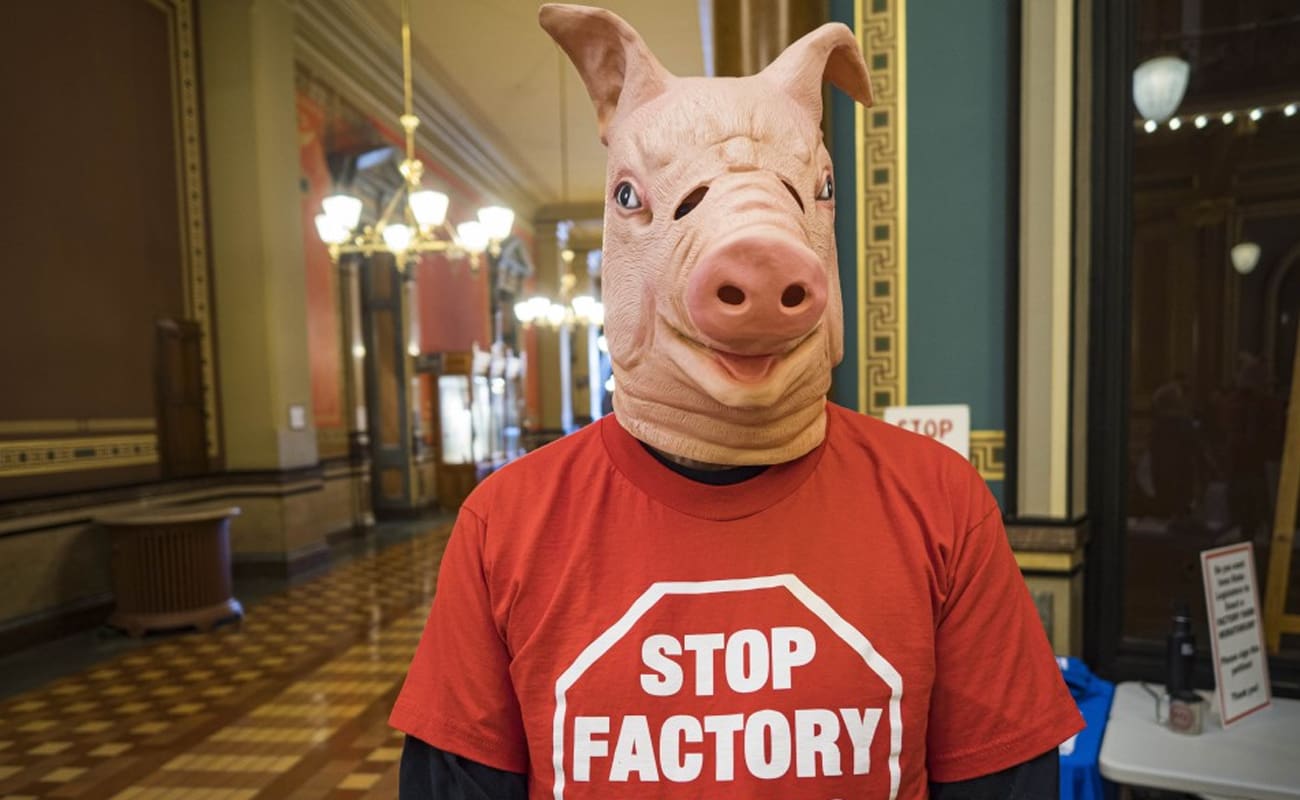விலங்குகளைப் பாதுகாக்கவும், நீதியை ஊக்குவிக்கவும், நமது உலகில் நேர்மறையான மாற்றத்தை உருவாக்கவும் குரல்களை எழுப்புவதும் நடவடிக்கை எடுப்பதும் வக்காலத்து வாங்குவதும் ஆகும். நியாயமற்ற நடைமுறைகளை சவால் செய்வதற்கும், கொள்கைகளை செல்வாக்கு செலுத்துவதற்கும், விலங்குகள் மற்றும் சுற்றுச்சூழலுடனான தங்கள் உறவை மறுபரிசீலனை செய்ய சமூகங்களை ஊக்குவிப்பதற்கும் தனிநபர்களும் குழுக்களும் எவ்வாறு ஒன்றிணைகிறார்கள் என்பதை இந்தப் பிரிவு ஆராய்கிறது. விழிப்புணர்வை நிஜ உலக தாக்கமாக மாற்றுவதில் கூட்டு முயற்சியின் சக்தியை இது எடுத்துக்காட்டுகிறது.
பிரச்சாரங்களை ஒழுங்கமைத்தல், கொள்கை வகுப்பாளர்களுடன் இணைந்து பணியாற்றுதல், ஊடக தளங்களைப் பயன்படுத்துதல் மற்றும் கூட்டணிகளை உருவாக்குதல் போன்ற பயனுள்ள வக்காலத்து நுட்பங்களைப் பற்றிய நுண்ணறிவுகளை இங்கே காணலாம். வலுவான பாதுகாப்புகள் மற்றும் முறையான சீர்திருத்தங்களுக்கு அழுத்தம் கொடுக்கும் அதே வேளையில், பல்வேறு கண்ணோட்டங்களை மதிக்கும் நடைமுறை, நெறிமுறை அணுகுமுறைகளில் கவனம் செலுத்தப்படுகிறது. வக்காலத்து வாங்குபவர்கள் தடைகளை எவ்வாறு கடக்கிறார்கள் மற்றும் விடாமுயற்சி மற்றும் ஒற்றுமை மூலம் உந்துதலாக இருக்கிறார்கள் என்பதையும் இது விவாதிக்கிறது.
வக்காலத்து வாங்குவது என்பது வெறும் பேசுவது மட்டுமல்ல - மற்றவர்களை ஊக்குவிப்பது, முடிவுகளை வடிவமைப்பது மற்றும் அனைத்து உயிரினங்களுக்கும் பயனளிக்கும் நீடித்த மாற்றத்தை உருவாக்குவது பற்றியது. அநீதிக்கு ஒரு பதிலாக மட்டுமல்லாமல், மிகவும் இரக்கமுள்ள, சமமான மற்றும் நிலையான எதிர்காலத்தை நோக்கிய ஒரு முன்முயற்சியான பாதையாகவும் வக்காலத்து வாங்குவது வடிவமைக்கப்பட்டுள்ளது - அங்கு அனைத்து உயிரினங்களின் உரிமைகளும் கண்ணியமும் மதிக்கப்பட்டு நிலைநிறுத்தப்படுகிறது.
தொழிற்சாலை பண்ணைகளில் விலங்குகளின் கொடுமை மிகவும் சிக்கலான பிரச்சினையாக உள்ளது, மில்லியன் கணக்கான விலங்குகள் இறைச்சி, பால் மற்றும் முட்டைகளுக்கான வளர்ந்து வரும் தேவையை பூர்த்தி செய்ய பயங்கரமான நிலைமைகளுக்கு உட்பட்டுள்ளன. தடைபட்ட இடங்கள், தவறான கையாளுதல் மற்றும் புறக்கணிப்பு ஆகியவை இந்தத் தொழிலை வரையறுக்கும் சில மனிதாபிமானமற்ற நடைமுறைகள். விலங்குகள் மீது ஏற்படுத்தப்பட்ட துன்பங்களுக்கு அப்பால், இந்த முறைகள் பொது சுகாதாரம் மற்றும் சுற்றுச்சூழல் நிலைத்தன்மை குறித்து கடுமையான கவலைகளை எழுப்புகின்றன. கடுமையான சட்டம், இலவச-தூர அமைப்புகள் போன்ற நெறிமுறை விவசாய நடைமுறைகளுக்கு ஆதரவு மற்றும் தகவலறிந்த நுகர்வோர் முடிவுகள் மூலம் மாற்றம் சாத்தியமாகும். ஒன்றாக, ஒரு நிலையான உணவு முறையை வளர்க்கும் போது விலங்கு நலனை மதிக்கும் ஒரு கனிவான அணுகுமுறைக்கு நாம் அழுத்தம் கொடுக்கலாம்


























































